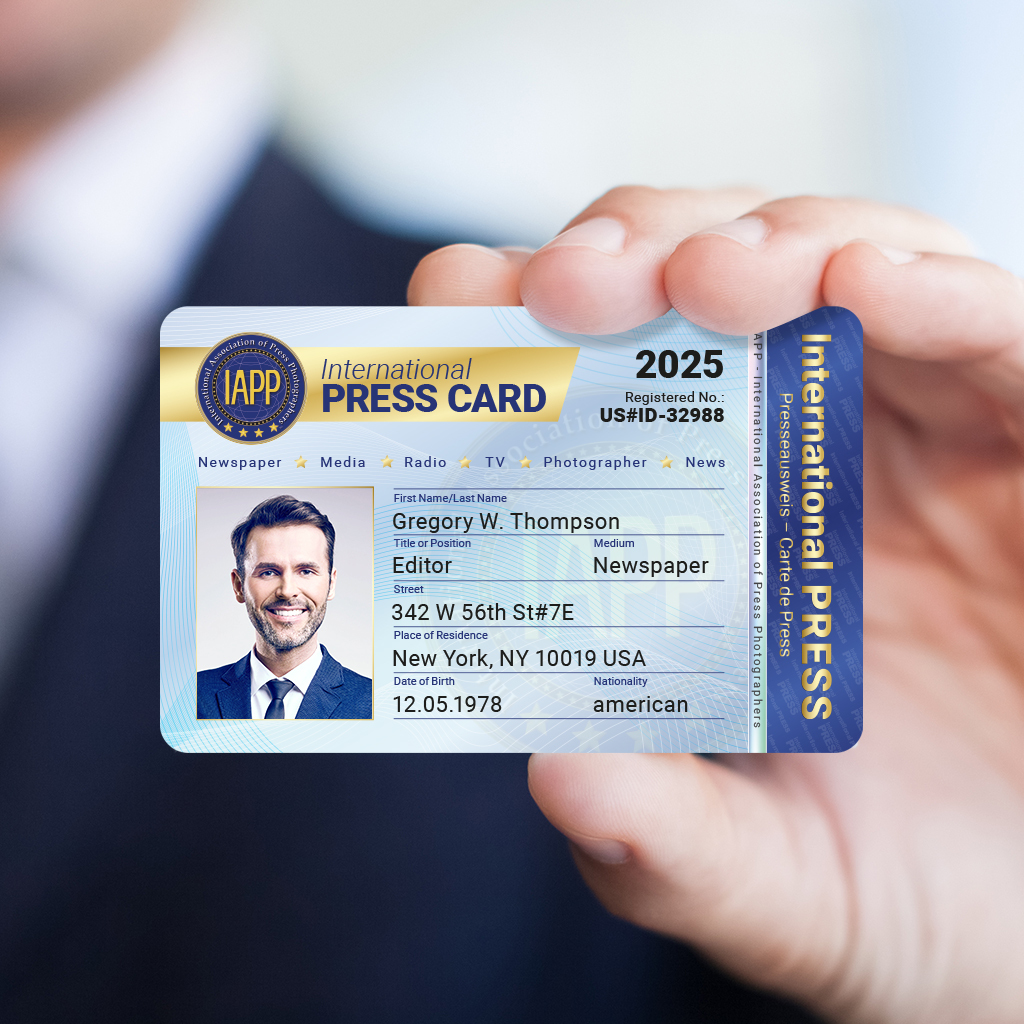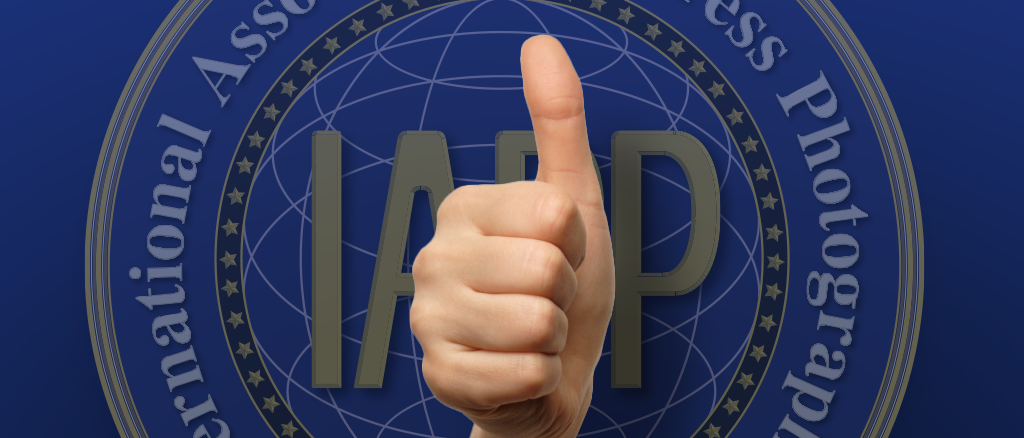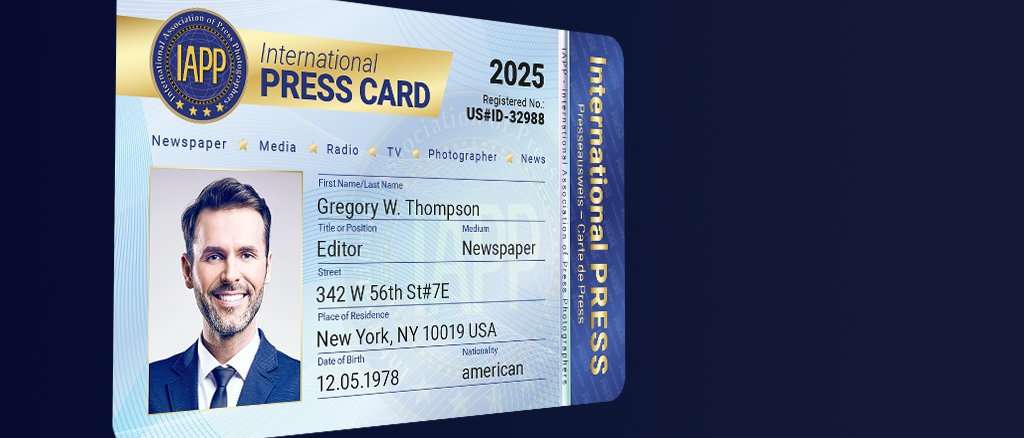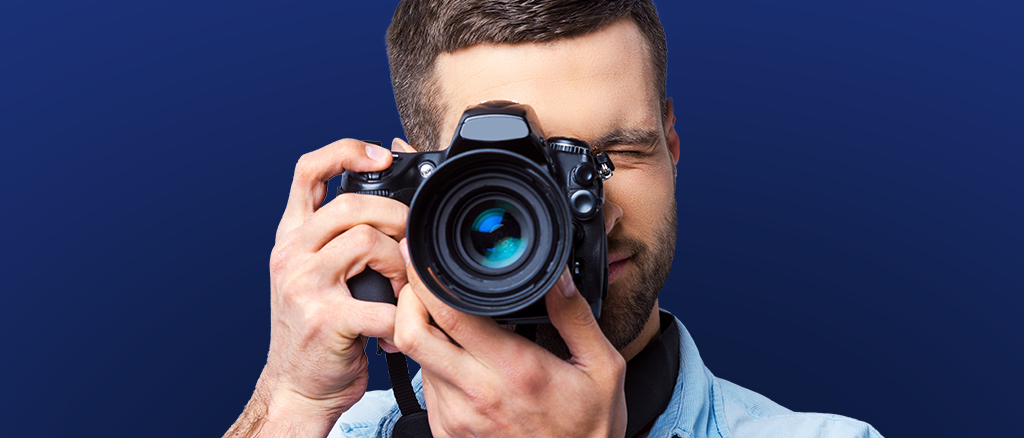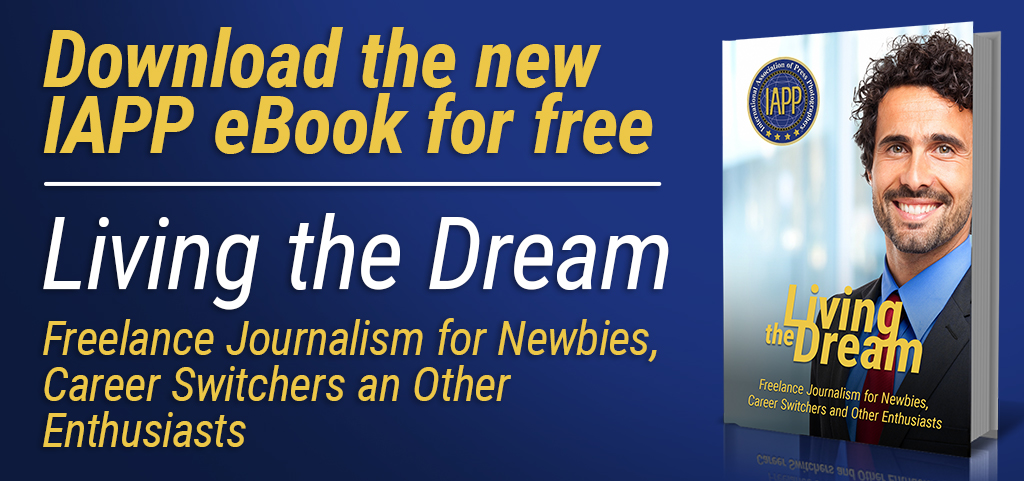FAQ
The following is a list of frequently asked questions to address general issues that come up time and again. These FAQs will provide quick answers to the most common questions. If you cannot find the answer to your question here, please don´t hesitate to contact us.
The International Association of Press Photographers (IAPP) is among the leading professional and industry groups for journalists, reporters and press photographers in the United States. The IAPP is an international, nonpartisan, independent association that is not affiliated with any political party, union, financial institution or publisher. We represent the professional, legal and social interests of authors, PR professionals, press photographers, media professionals and journalists.
Any journalist, whether employed or working as a freelancer, can apply for IAPP membership. Unlike many other journalists associations, IAPP does not differentiate between full-time and part-time employment. Quality journalism is not based on full-time employment or salary, which is why IAPP also welcomes freelance journalists as members, who will be able to take advantage of all the benefits that come with a membership in our association.
- Marketing platform for editorial contents (articles, images, audio, online) through our own news portals
- Favorable terms for certain purchases (special benefits and media discounts, thanks to our collaboration with companies and product providers)
- Letter confirming assignment and press ID card
- Press vehicle ID
- International press pass
- APP Certificate of Accreditation (CERTIFIED INTERNATIONAL PRESS PHOTOGRAPHER)
- Specialized and professional consultation with 24/7 email support
IAPP is an officially registered, international press and journalists association headquartered in the USA. The International Association of Press Photographers is authorized to issue the IAPP press pass, which is an officially recognized credential. IAPP press credentials are officially registered (United Journalists & Photographers Association Registration Services). Thanks to the extensive efforts of our association, our press pass is widely recognized with government agencies, companies and event organizers. In European countries such as Germany, Austria, Switzerland, England, France, the Netherlands and Belgium, it is on par with national press ID cards.
Press passes are not issued by government agencies but rather by journalistic entities. There are no government-issued or "official" press passes. Journalists associations do not have the exclusive right to issue press passes. Any media representative, whether part time or full time, has the right to carry a press pass. This is the guiding principle behind the IAPP.
Membership with the IAPP costs $49 per year. This makes the International Association of Press Photographers one of the most affordable associations in the world. Membership comes with many benefits:
- Representation of interests
- Strong networks
- Straightforward, comprehensive and knowledgeable service
- Support for part-time journalists
- Tips for successfully marketing journalistic work
- Tips on how to get project assignments
- Right to carry the title "Member of the International Association of Press Photographers" or "Member of the IAPP"
- Press pass and press ID card
- Press vehicle ID
- Letter confirming assignment and IAPP certificate of accreditation
A press pass does not guarantee free event admission for media representatives. However, most organizations assume that those presenting a valid press ID are there in their capacity as media professionals. In some cases, organizers may ask to receive samples of the media coverage. A press pass grants access to areas that are off limits to non-media professionals. Please note that each organizer has the right to determine which media representatives will be granted access. Tips on how to gain access to popular trade shows and events after being rejected are available in our members-only area.
Displaying a press vehicle ID allows journalists to gain access to restricted areas and park in specially reserved spots (e.g. during trade shows, concerts, sporting events and other functions). Please be aware that a press vehicle ID does not protect you from receiving a parking ticket if your car is parked illegally. In many media-friendly cities, however, police officers tend to turn a blind eye if they see a press vehicle ID in the car. The press vehicle ID may only be used during trips that serve the purpose of journalistic reporting. It is only valid in combination with a press pass. It must be renewed annually and bear a stamp or sticker indicating the current year.
This is a measure of protection against forgery or imitation of our credentials. The look of the ID card changes with each year, and we continue to add new safety features. This makes it significantly harder, if not impossible, to forge our press passes. IAPP press passes are registered and marked with the current year to indicate their validity.
Certification through the IAPP is an important measure of quality, as the title "press photographer" is not protected and can be assumed by anyone. IAPP certification makes a statement about a press photographer´s professional status. In some professions, certification is a requirement in order to work. Physicians, mechanics, accountants, surveyors and many other professions are required to go through a certification process of some kind.
The certification helps potential clients determine whether they are hiring a qualified professional. Consumers may not know much about professional photography, but they understand that a certified professional is more likely to deliver quality products and services. Anyone can buy a camera and snap a few pictures. The Certified Press Photographer (CPP) credential shows clients that you are a professional in your field.
In a nutshell: The number of published photos or albums plays a significant role in the process. We also consider the number of individual photos, as well as rejected photos and albums.
General requirements for certification:
- PIM members of the IAPP (membership fee must be paid in full)
- Your information must be included in the "Partner Info" section
- You must upload your passport photo
- You must publish at least three albums
All four prerequisites must be met in order to become a CIPP - CERTIFIED INTERNATIONAL PRESS PHOTOGRAPHER. Only then, the CIPP seal will be unlocked in your member profile and become visible.
Quality requirements
Before we allow you to take advantage of all the benefits available to IAPP Certified Press Photographers, we want to ensure that our press photographers are active members and deliver professional work. Our platform is neither a practical storage space for photos nor a collection of private, substandard images.
Our CIPP seal allows you to enhance your Internet presence significantly. It also allows you to prove that you are working as a registered and certified journalist. As a member, you have the right to display this seal on your website, letterhead, business cards or blog.
Once you have published at least three photo galleries/press photos on the IAPP website, you must log into your member profile. The CIPP seal will be unlocked automatically.


